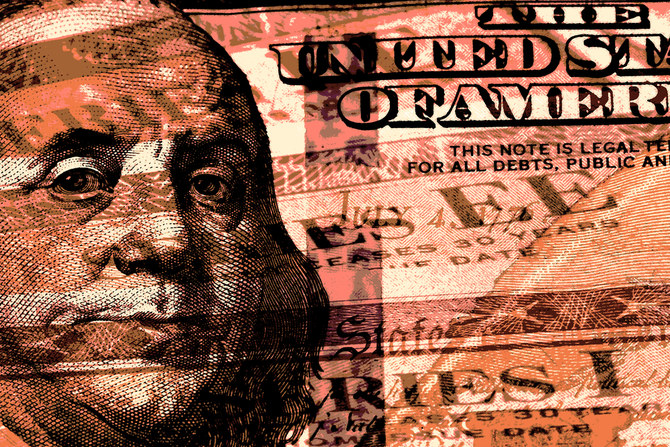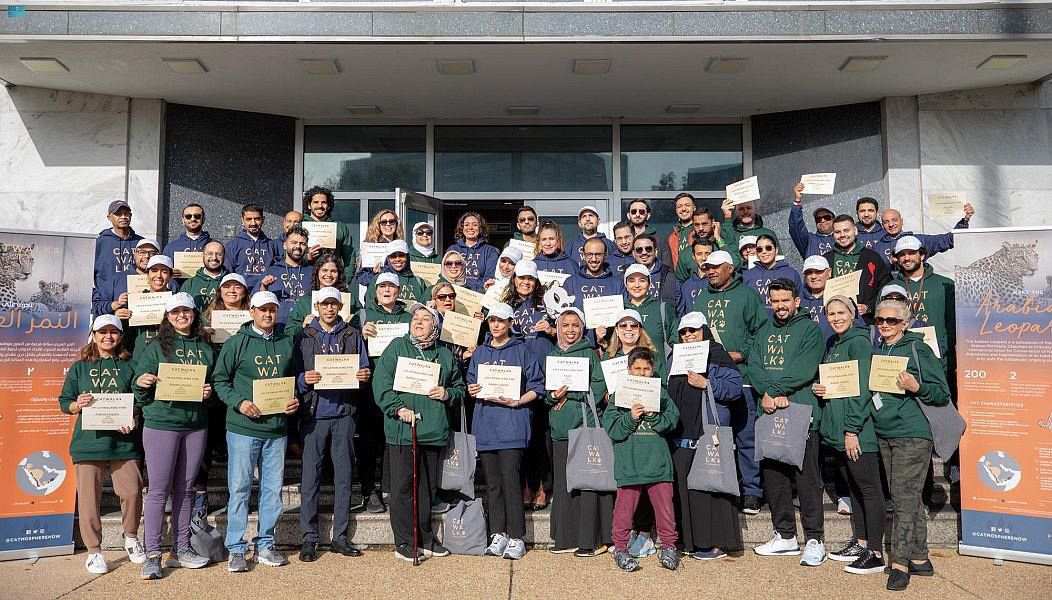
First up will be Misk Art Week, annual weeklong program to be held at the Prince Faisal bin Fahd Arts Hall in Riyadh
Diriyah Contemporary Art biennale is probably the biggest attraction of the Kingdom’s upcoming cultural season
DUBAI: In common with other parts of the world, art, culture, and entertainment took a back seat in Saudi Arabia during the worst phase of the COVID-19 pandemic.
But now, with infection rates under control in the Kingdom thanks to a successful immunization campaign, a two-year period of event closures and cancellations has finally ended.
Take December, which promises to be an especially action-packed month in the Saudi cultural calendar, with events running the gamut from in-person exhibitions and concerts to grand openings, many of which had been rescheduled since the onset of the pandemic.
First up will be Misk Art Week, opening at the Prince Faisal bin Fahd Arts Hall in Riyadh on Dec. 1. This annual weeklong program of exhibitions is being staged by the Misk Art Institute, operating under the auspices of Crown Prince Mohammed bin Salman.
Then comes the first edition of Riyadh Art, billed as the largest public civic arts initiative of its kind in the world. Running from Dec. 5 to 8, it will feature 12 programs launched by the Royal Commission for Riyadh City to transform the Saudi capital into “a gallery without walls.”
Meanwhile, over in the Red Sea coastal city of Jeddah, the Jameel Art Center is scheduled to open its long-awaited, multidisciplinary arts complex, Hayy Jameel, on Dec. 6.
Also coming to Jeddah in December is the annual Red Sea Film Festival. The Dec. 6 to 15 event, first launched in 2019, prides itself on featuring emerging talents from Saudi Arabia, the Arab region, and the developing world.
Then, to crown it all, the Diriyah Contemporary Art Biennale opens on Dec. 11 in the new JAX district of Diriyah, home to the UNESCO World Heritage Site At-Turaif, the first capital of the House of Saud dynasty founded in the 15th century. The event — Saudi Arabia’s first — will run until March 11.
Culture is an integral part of the Saudi Vision 2030 reform plan, launched five years ago to diversify the Kingdom’s economy away from oil as well as to embrace sectors such as tourism, technology and the creative industries.
Philip Tinari, director and chief executive officer of the Beijing-based UCCA Center for Contemporary Art and the lead curator behind the Diriyah biennale, told Arab News: “This is an art scene on the brink of greatly increased prominence and much of that has to do with government initiatives at all kinds of levels.
“Another big part of it has to do with this generation of artists who, maybe before these changes, were living abroad and have now decided to move home where they are finding new vectors of support.”
Before the COVID-19 outbreak morphed into a pandemic in early 2020, Saudi Arabia was gearing up to become a global destination for the arts.
Seasonal festivals were already popping up throughout the country and the ancient northwestern city of AlUla was staging a variety of concerts, conferences, and open-air exhibitions.
The cultural explosion was triggered partly by the Kingdom’s decision to open up to foreign tourists in September 2019 with a new electronic visa scheme. However, as the health crisis went global a few months later, the country was forced to close its doors once again.
Now that international travel has resumed with COVID-19 protocols in place, the cultural floodgates are open once more and visitors to the Kingdom are spoilt for choice.
Hayy Jameel is among the most hotly anticipated openings of the year. Designed by the multi-award-winning architectural studio waiwai, Art Jameel’s new dedicated home for the arts in Jeddah has been billed as a dynamic, creative hub for the community.
Antonia Carver, director of Art Jameel, told Arab News: “Hayy Jameel has been in the planning for more than 20 years, but it couldn’t have come to fruition at a timelier moment.
“The launch of our creative neighborhood accompanies an incredibly exciting calendar of events. The opening season opens to the public from Dec. 6 and unfolds through the spring, as cultural partners launch their spaces and we open the indie Hayy Cinema, making the complex Jeddah’s true home for the arts.”
In any event, the creative arts environment in Saudi Arabia is maturing fast, boosting demand for dedicated spaces for exhibitions, screenings and performances.
Carver said: “It needs independent, community-oriented endeavors working alongside the larger-scale government-led initiatives.
“The Ministry of Culture and other government entities are actively encouraging the not-for-profit sector and organizations like Art Jameel, given our mandate to give back to Saudi and support artists and nurture creative communities.
“To balance out the current breakneck pace of development, and demands on Saudi artists, we’re also aiming to foreground opportunities to develop long-term research, ideas, and skills; to explore and document local histories; develop contextual learning resources in Arabic; and to cross-pollinate the various creative art forms, bringing together visual arts, film, performance, architecture, design, and more.”
While Jeddah positions itself as one of the region’s foremost cultural destinations, Riyadh refuses to be outdone. First up in the Saudi capital’s cultural calendar is Misk Art Week.
Reem Al-Sultan, CEO of Misk Art Institute, told Arab News: “The fifth edition of Misk Art Week unites emerging and established artists in Saudi Arabia and across the globe with experts in critical and cultural discourse.
“Misk Art Institute offers an insightful array of multidisciplinary practices and international perspectives, providing a unique, educational experience to both the participating creatives and to the public engaging with these compelling conversations.”
Opening just a few days later will be Riyadh Art, staged by the Royal Commission for Riyadh City, of which the Tuwaiq International Sculpture Symposium is part. The program includes an awards ceremony and will convene 20 sculptors from Saudi Arabia, the Arab region, and around the world.
Khalid Al-Hazzani, an architect and the RCRC’s director of projects, told Arab News: “Riyadh Art continues to transform the city into a gallery without walls with the launch of the Tuwaiq International Sculpture Symposium, its second initiative.
“As art and culture reflect the spirit of a city, we look forward to contributing to Riyadh’s vibrant art season this December and offering a platform for cross-cultural dialogue and exchange.”
The Riyadh Art Project is just one of the city’s four mega-projects launched by King Salman on March 19, 2019. Dubbed a milestone in Riyadh’s mission to become one of the world’s most livable cities, the initiative will involve the installation of more than 1,000 artworks across the metropolis.
The Diriyah biennale is undoubtedly the biggest attraction of the crowded cultural season. Developed by a team of international curators led by Tinari, the event will feature works by around 70 artists examining the theme, “Feeling the Stones.”
The biennial event will alternate each year between a contemporary art and an Islamic art exhibition under the auspices of the Diriyah Foundation, chaired by Prince Badr Al-Saud.
“I think the Diriyah biennale will consolidate much of the progress that has been made,” Tinari said, referring to Saudi Arabia’s cultural awakening.
“What is really special about it is the scale — spread across 12,000 square meters of newly converted warehouse space that will be dedicated to this event moving forward.
“I hope that the Diriyah biennale will become a benchmark for the scene more generally and that other kinds of art events will congregate around it.”










